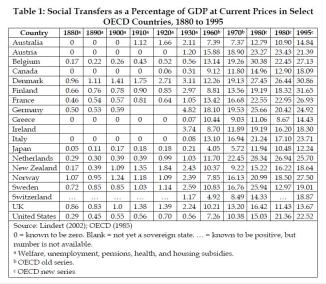In this clip from a recent interview with Gunther Fehlinger, I explore the connection between two very important important economic concepts: Convergence and Wagner’s Law.
Before launching into further discussion, let’s nail down two very important definitions.
- Convergence is the notion that poor countries should grow faster than rich countries and eventually attain a similar level of prosperity.
- Wagner’s Law is the seemingly paradoxical observation that richer nations tend to have larger fiscal burdens than poorer nations.
These two concepts deserve elaboration because many people either fail to recognize the implications or they draw the wrong conclusions.
For instance, convergence is a sensible theory, but the rate of convergence (or divergence!) is very dependent on the degree to which nations have good policy (or bad policy).
Moreover, Wagner’s Law shows that politicians figure out how to extract more money and fund bigger government once nations become rich, but some people reverse the causality and assert that big government somehow caused nations to become rich.
The key takeaway from these observations, as I explained in the interview, is that poor nations that want convergence need to copy the policies that rich nations had when they became rich (in the interview at about 0:56, I mistakenly said “were rich” rather than “became rich”).
And I’ve written many times to show that the rich nations of the western world made the leap to industrial prosperity in the 1800s and early 1900s – at a time when they had no welfare states and very low fiscal burdens (indeed most of them didn’t have any income taxes during that period).
Which gives me another excuse to re-issue my never-answered challenge: Please show me an example, from any point in world history, of a country became rich after adopting big government.
———
Image credit: Pixy.org | CC0 Public Domain.


